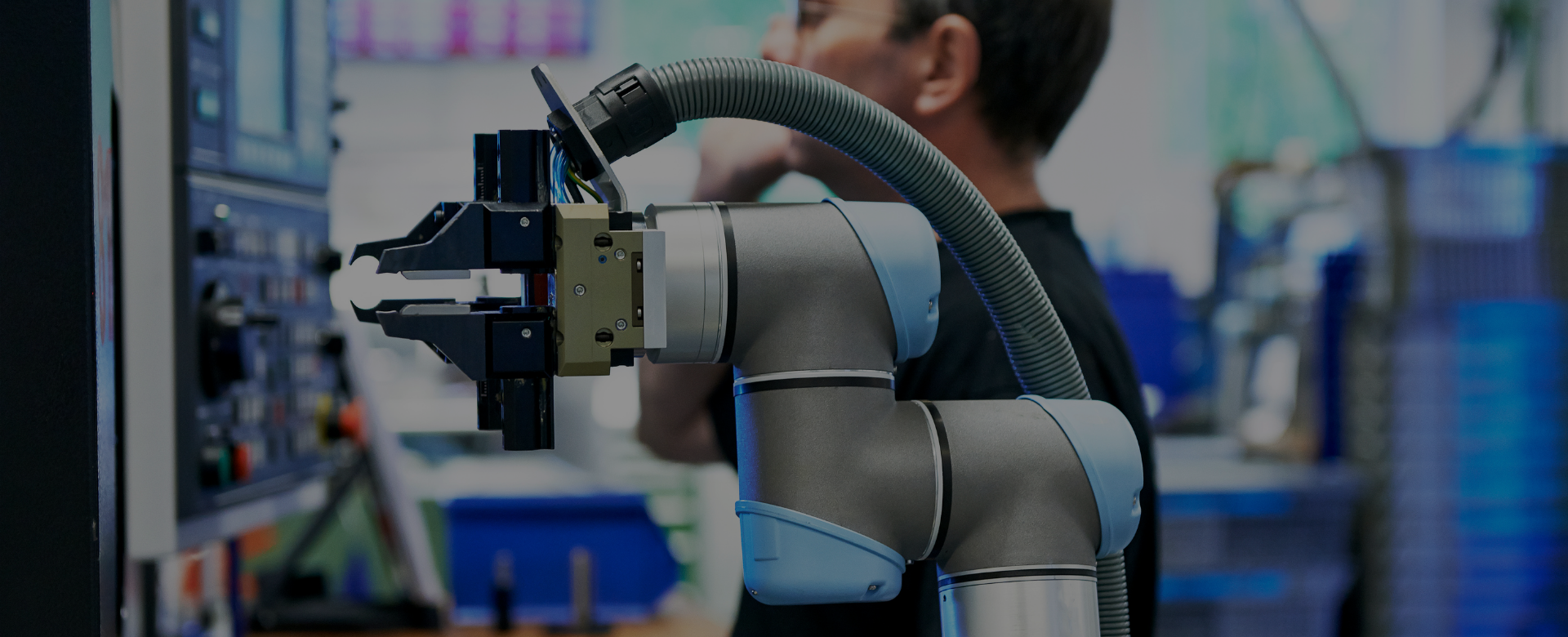The Danish industrial world can move a great deal of production to Denmark from abroad, and do it profitably, by utilizing robots. It requires that the Danish workforce is trained to recognize and use the full capabilities of modern automation technology. Too few employees have the skills and experience to accelerate this development and to place Denmark at the forefront of the global robot race.
In the 2000s many Danish production companies moved their production, or outsourced parts of it, to countries where labor was cheaper.
For some companies it was a smart move, others ended up with a loss. However, Denmark as a whole suffered due to a loss of jobs and tax revenues. Compounding this was the fact that Denmark already faced a declining workforce with fewer people doing more work. Today a new trend has emerged. More and more Danish companies are moving their production back home, investing in a more profitable form of production, where humans and robots work side by side. The increase in robots in the Danish industry will only draw more production back to Denmark – but only if enough Danes have mastered how to use them.
As the unifying force behind Denmark’s thriving community of robotics developers, researchers, and users, RoboCluster is engaged in nationwide robotics training. Together with Industrisamarbejdet, DIRA, and the Danish Automation Society, we are taking the first step with introductory robotics courses in Jutland, Funen, and Copenhagen in the fall of 2016. The number of robots used in production has grown significantly globally in recent years. According to the robot association IFR, more than 240,000 industrial robots were sold worldwide in 2015.
Integrating robots and other automated technology often means a transformation for a company. Automation becomes a greater success if all employees know how new production methods change both processes and workflow. Investments in robots have a much greater return on investment when a company fully utilizes the potential of the technology.
For that reason, it is imperative that we expand our competency to keep up with the development of automation technology. Not to say that we all need to become highly educated robotics experts. There is a need for robotics competences on many levels; Some must have the skills to see automation opportunities, build automation solutions, and to install and program them. In addition, nearly everyone will be expected to acquire skills to operate various types of robots in their jobs in the near future.
Many companies in the Danish industrial world have realized the need for robotics training. Every third company in the Danish industrial world estimates that within the next two years they will need skills to install new robots, according to a new analysis from the trade associations Danish Metal and Danish Industry.












